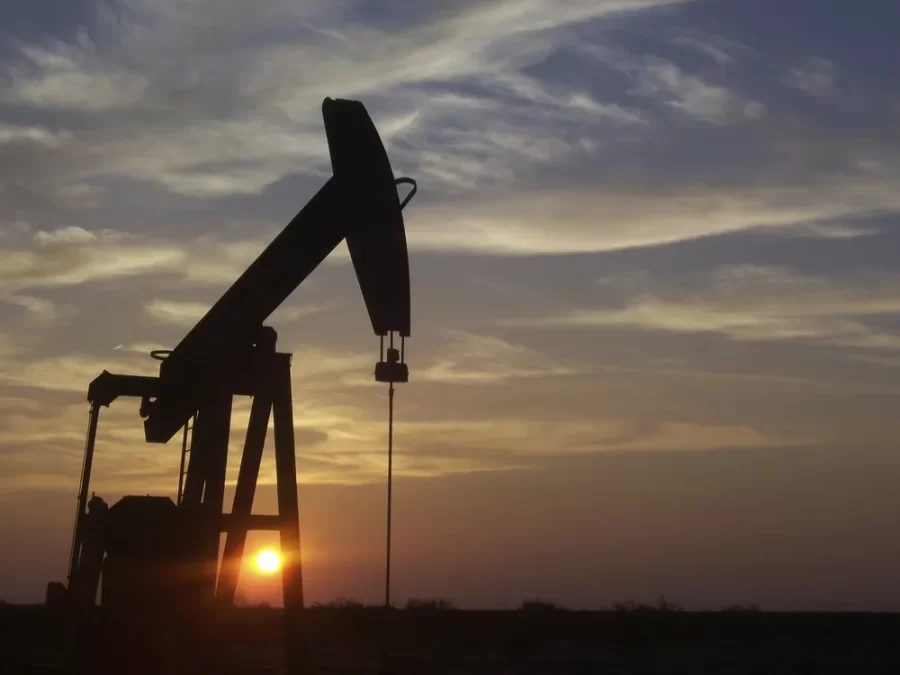Biden approves detrimental Willow Project: furthering the effects of climate change
May 8, 2023
Climate change is one of the most prominent issues in the world, and American leaders aren’t doing enough to stop it. In fact, they’re doing more to add to it.
On Mar. 13, 2023, United States President Joe Biden approved the eight billion dollar Willow Project, the largest oil drilling project ever proposed, sending many Americans into turmoil. This project has the potential to release 239 million metric tons of carbon dioxide into the atmosphere, the primary source of climate change.
When Biden was first running for presidency, he stated that he would never drill on federal lands and he is now breaking that promise. Many environmental advocates have stated that this means he is going against his apparent climate goals.
“While I believe Biden has made good progress with his climate measures in the Inflation Reduction Act, this decision is a step in the wrong direction,” said Norrix art teacher Gregg Stevens. ”This is precisely why people don’t trust politicians – saying one thing and doing another.”
Stevens isn’t the only one that believes that politicians are good at breaking promises. LN junior and leader of Green School Club Bridgette Bol, shared similar views stating, “I am constantly frustrated and disappointed by the broken promises of politicians. President Biden is no different, but I hope that someday people will be willing to sacrifice for the planet.”
Sophomore Nola Mullins touches on the trust and long-term effects.
“Him [Biden] going back on that not only betrays so much trust of the people, but the belief that he cared about the environment in the first place. He won’t even be alive to see the damage of the things he has written off on and it’s all just really upsetting to think about,” said Mullins.
According to ConocoPhillips, this project will produce more than 2,000 construction jobs, and more than 300 of those will be long term, with over 9 million labor hours.
ConocoPhillips also states that this project will bring $2.1 billion to the state of Alaska, $1.2 billion to the North Slope Borough and $7.6 billion to the federal government, of which $2.6 billion will be made available to the impacted communities.
“The only benefits I could see would be the increase of energy and the boost of Alaska’s economy, but I feel both could have found other solutions that wouldn’t cause such major damage to things,” said Mullins.
The original project proposed five different drilling sites, but when the project was approved, it was reduced to three drilling sites. In doing so, the amount of freshwater use is reduced and will completely eliminate the infrastructure that would’ve been needed. According to the press release from the US Department of the Interior, “including approximately 11 miles of roads, 20 miles of pipelines and 133 acres of gravel.”
Even with these major reductions to the project, it still doesn’t outweigh the potential damages that will come from this decision.
“My biggest concern is the further use of fossil fuels will make it harder to mitigate its impacts, which will already be drastic for some regions of Earth,” said Stevens, “specifically, ecological collapse, mass extinctions and possible challenges to human survival are all possibilities laid out by climate scientists from NOAA, NASA and the UN.”
The Biden Administration announced future plans to limit developments in these special areas. These areas include Teshekpuk Lake, Utulok Uplands, Colville River, Kasegaluk Lagoon and Peard Bay Special Areas. All of these areas have a lot of history and wildlife that will be lost if drilling occurs.
The Biden Administration has also decided to designate 2.8 million acres in the Arctic Ocean as indefinitely restricted from any future oil drilling developments, in an effort to ensure the safety of wildlife in this area.
However, just because all of these good steps are being taken to reduce the project, it doesn’t take away from the damage that it will still cause now nor the damage that it will cause the planet for future generations to deal with.
“It’s going to cause irreparable damage to not only the earth, but the animals and people who rely on the land around it,” Mullins continued, “It’s going to do so much more harm than it will good. It’s going to push the damage we’ve done to the earth past a point where we can fix it.”
[sno-poll id=”29804″ result_color=”#000E3E” tile_color=”#ffffff” align=”left” background=”on” background_color=”#ffffff” border=”all” border_color=”#888888″ border_size=”5px” shadow=”on”]












